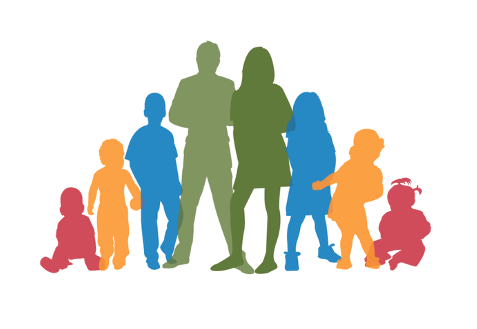Frequently Asked Questions
How did families get involved in Early Steps?
Families first joined the Early Steps Project in the early 2000s. At that time, caregivers — usually mothers — of two-year-old children completed a survey at one of their WIC appointments. Based on their responses, they were invited to take part in the study. We’re so grateful for your ongoing support!
What is the purpose of the Early Steps Study?
We are working to better understand how people grow and change throughout their lives starting in early childhood. We are interested in their relationships with others, health, and overall well-being. Our hope is to develop tools that can help families here and around the world thrive and reach their full potential.
How long will the Early Steps project continue?
Great question! While we don’t yet know exactly what the future holds for the Early Steps project, we’re always looking for ways to continue this important work, and we’ll be sure to keep you in the loop. If your contact information has recently changed, click here to let us know so we can stay connected!
What are some of the findings from the study so far?
Positive Parenting Helps Reduce Future Conflict. Sometimes parents and children have negative moments. When this happens often, it can cause more problems over time. We wanted to find out if having positive moments could help reduce future conflicts. To learn more, we watched videos of parents and children during home visits. We found that families with more positive moments had fewer problems the next year. This was especially true when children were 3 and 5 years old. These results show that having positive moments early can help reduce conflicts later.
Child Behavior Impacts School Success. Many studies show that how young children behave is linked to how well they do in school. We wanted to find out which behaviors matter most. Using parent surveys and by watching children during activities at home, we discovered that toddlers who acted out, such as hitting or yelling, were more likely to struggle in school later. Acting out was a stronger sign of later school struggles than other behaviors like not paying attention or being very active. This means helping kids who act out early can help them succeed in school.
Positive Parenting Can Help Promote Child Physical Health. Giving children nutritious food is important to keep them healthy. We found that parents who used positive parenting when their children were 2 years old were more likely to prepare healthy meals when the children were 3. The same was true from ages 3 to 5. This shows that positive parenting helps parents provide healthy food for their children.
Can I enroll my child in Early Steps?
We are sad not to be able to welcome new children into the study at this time. Please check back—we’ll share any updates on our website if any new opportunities open up in the future! In the meantime, we invite you to take a look at our community resource guides.
I didn’t receive my payment. What should I do?
We’re sorry to hear that! If you haven’t received your payment, please contact us so we can look into it right away.
Where can I find community resources for support?
We’ve compiled a list of local and national resource guides that may be helpful to you, including services related to health, mental health, housing, financial assistance programs, crisis support, and more.
For Pittsburgh residents, click here to view an opportunity to join a home-visiting program in the community.
I need help urgently. What should I do?
If you are in immediate danger or need urgent support, please call emergency services (911) or reach out to a 24/7 crisis line like the National Suicide & Crisis Lifeline by calling 988.
Got any other questions or concerns? Just get in touch, we’d love to hear from you!
